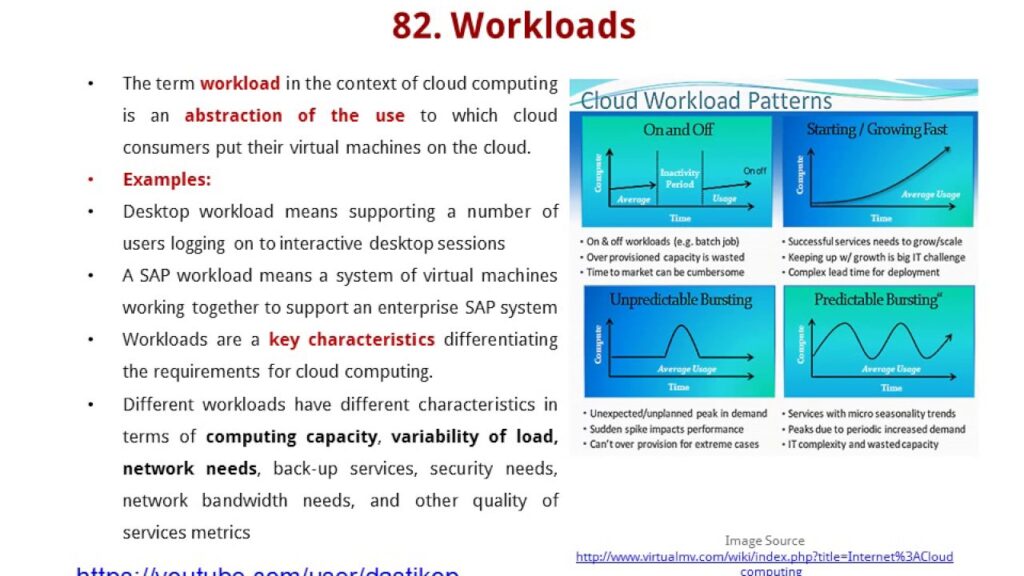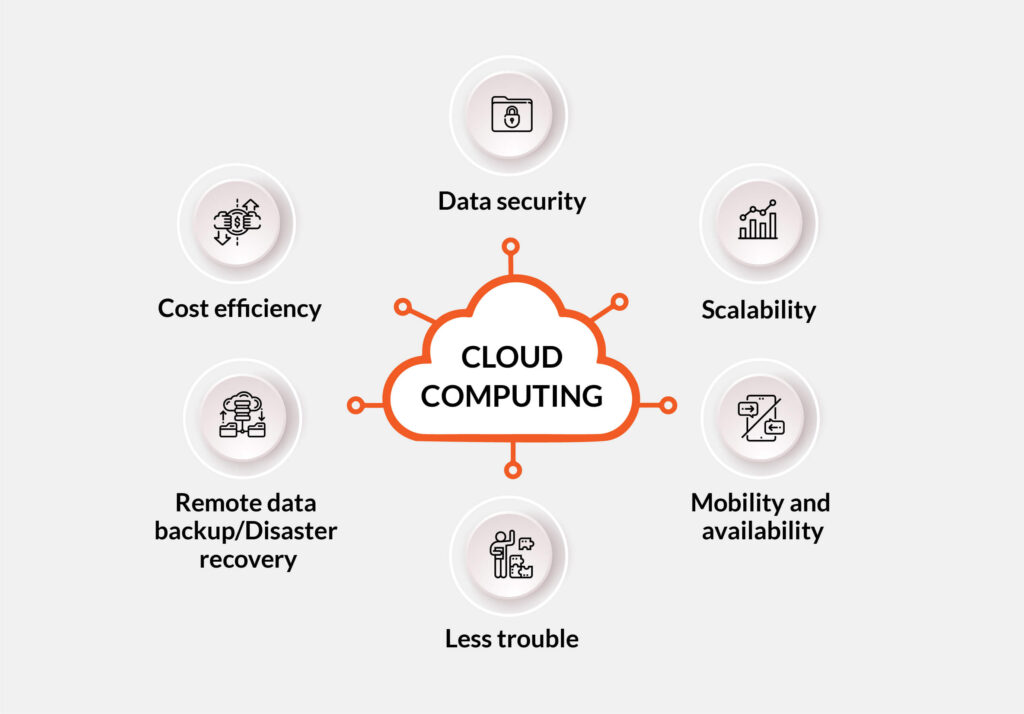Cloud technologies play a crucial role in the ongoing digital transformation, fueling innovation and flexibility across various industries. As platforms like AWS, Azure, and Google Cloud gain popularity, organizations are increasingly focusing on cloud training solutions to enhance the skills of their workforce and leverage the benefits of cloud computing to the fullest. However, with a plethora of options available, selecting the right cloud training platform can be a daunting task.
In this blog post, we delve into the realm of cloud-based training, covering everything from the significance of cloud training solutions to essential factors to consider when choosing a platform, and the key features to look out for.
### The Importance of Cloud Training Solutions
1. **Rising Cloud Adoption**: The shift towards cloud infrastructures is picking up pace as businesses seek to improve scalability, cost-efficiency, and security. This surge in cloud adoption has created a demand for proficient cloud professionals who can effectively utilize these platforms. Cloud training solutions play a crucial role in equipping employees with the necessary skills to navigate these platforms efficiently.
2. **Addressing the Skills Gap**: The scarcity of qualified cloud talent poses a significant challenge for organizations. Cloud training systems help bridge this gap by offering structured learning paths, hands-on experiences, and certifications. By providing continuous learning opportunities, companies can cultivate an in-house talent pool capable of handling cloud projects competently.
3. **Cost-Effective Learning**: Traditional in-person training programs often come with hefty investments in hardware, physical setups, and travel. In contrast, cloud-based training eliminates these overheads by delivering training in virtual environments that replicate real-world scenarios at a fraction of the cost. The scalability of cloud solutions allows organizations to train large teams simultaneously without incurring additional expenses.
4. **On-Demand Learning**: Cloud training online enables learners to access training modules anytime, anywhere. Whether working remotely or on-site, employees can undertake courses at their own pace, fostering flexibility and enhancing employee retention. This aspect is particularly valuable for remote and hybrid teams as it ensures uninterrupted learning.
5. **Boosted Productivity**: Proficiency in cloud technologies translates to increased efficiency and productivity among employees. The hands-on labs and simulations offered by top cloud training platforms enable learners to gain practical experience, empowering them to tackle real-world challenges adeptly. Well-trained employees make fewer errors and can expedite project timelines.
6. **Scalable Workforce Development**: Businesses require scalable training solutions to keep their workforce abreast of the latest skills. Cloud training platforms adapt to the evolving landscape of cloud environments, ensuring organizations stay at the forefront of technological advancements.
### Top 5 Cloud Training Solutions in 2025
1. **CloudShare**: Known for its virtual labs tailored for IT professionals and enterprises, CloudShare offers hands-on training, software demos, and proof-of-concept simulations in real-world cloud environments.
**Key Features:**
– Virtual IT labs for hands-on learning
– Integration with LMS platforms
– Real-time analytics and reporting tools
– Scalable, cloud-agnostic infrastructure
**Pros:**
– Rapid environment setup and cloning
– Risk-free experimentation in isolated environments
– Ideal for complex IT training and software demonstrations
**Best for:**
– Enterprises in need of hands-on IT training
– Software companies focusing on customer onboarding and demos
CloudShare stands out as a top choice for enterprise-level cloud training.
2. **Pluralsight**: A cloud training solution offering a library of courses and hands-on labs tailored to IT professionals and developers, covering cloud computing, DevOps, software development, and security.
**Key Features:**
– Extensive library of cloud courses
– Hands-on labs for real-world practice
– Skill assessments to identify knowledge gaps
– Learning paths aligned with certifications
**Pros:**
– High-quality content from industry experts
– On-demand, self-paced learning
– In-depth progress tracking and reporting
**Best for:**
– Individuals and teams preparing for cloud certifications
– Organizations upskilling their workforce in cloud technologies
Pluralsight’s comprehensive content and hands-on approach make it a top contender in cloud training online.
3. **A Cloud Guru**: Specializing in cloud training for AWS, Azure, and Google Cloud, A Cloud Guru is an ideal platform for cloud certification preparation. It offers a holistic learning experience through video courses, hands-on labs, and quizzes.
**Key Features:**
– Cloud-specific learning paths for AWS, Azure, and GCP
– Hands-on labs to reinforce practical skills
– Certification preparation for popular cloud providers
– Engaging, bite-sized content for easy learning
**Pros:**
– Excellent for cloud certification training
– Vibrant community and peer support
– Gamified learning for increased engagement
**Best for:**
– IT professionals gearing up for cloud certifications
– Organizations cultivating cloud-native skills
A Cloud Guru continues to be a standout platform for mastering AWS, Azure, and Google Cloud technologies.
4. **Demodesk**: Tailored for cloud-based training and interactive presentations, Demodesk is a virtual platform particularly effective for customer-facing teams like sales and support that require remote demos and onboarding.
**Key Features:**
– Real-time virtual environments for training and demos
– Browser-based platform (no downloads required)
– Automated scheduling and meeting analytics
– Integration with CRM and productivity tools
**Pros:**
– Highly intuitive and user-friendly
– Supports personalized, interactive training experiences
– Ideal for live product demonstrations and remote training
**Best for:**
– Sales and support teams requiring customer training
– Remote onboarding for cloud-based solutions
Demodesk shines as a versatile cloud training system for businesses focused on interactive training and customer engagement.
5. **QuoDeck**: A comprehensive cloud training solution designed for gamified learning experiences, QuoDeck combines mobile-first content delivery with tools for interactive training, ensuring a fun learning experience.
**Key Features:**
– Gamified training modules for better engagement
– Mobile-friendly platform with offline access
– Real-time analytics and learner performance tracking
– Interactive assessments and quizzes
**Pros:**
– Excellent for creating engaging learning experiences
– Supports multimedia content (videos, quizzes, PDFs)
– Customizable for specific business needs
**Best for:**
– Enterprises seeking scalable cloud training systems
– Teams desiring gamified, interactive training experiences
QuoDeck’s emphasis on engagement and customization makes it an excellent cloud-based training solution for modern organizations.
### Factors to Consider When Choosing a Cloud Training Solution
Selecting the right cloud training solution for your organization requires a thoughtful evaluation of your objectives, workforce, and technical requirements. Here are key factors to consider:
1. **Training Content Quality**: Opt for platforms offering high-quality, up-to-date content curated by industry experts. Ensure the training covers foundational, intermediate, and advanced topics relevant to your organization, including video tutorials, quizzes, assessments, and practical projects.
2. **Hands-On Practice**: Look for platforms that provide virtual labs and real-world simulations, allowing learners to practice and experiment in safe, risk-free environments. Hands-on learning significantly enhances knowledge retention and confidence.
3. **Certifications and Learning Paths**: Choose platforms offering structured certification programs for popular cloud providers. Certification pathways should incorporate practice tests, mock exams, and expert guidance.
4. **Customization Options**: A robust cloud training system should allow for customized training paths, tailored content, and integration with your existing tools and systems. Customizable dashboards and user journeys enrich the learning experience.
5. **Scalability**: Ensure the platform can accommodate your organization’s growth and varying expertise levels. The ability to train global teams concurrently is essential for scalability.
6. **Analytics and Reporting**: Comprehensive analytics assist in monitoring progress, identifying knowledge gaps, and measuring the ROI of your cloud training initiatives. Detailed dashboards offer insights into completion rates, learner engagement, and performance.
7. **Ease of Use**: An intuitive user interface and user-friendly navigation are vital to ensure learners stay engaged and complete their training. User-friendly platforms reduce onboarding time and frustration.
8. **Support and Community**: Access to responsive support teams, peer communities, and mentoring programs adds value to the learning experience. Support resources can address technical issues, provide guidance, and foster collaboration.
### Key Features to Look for in a Cloud Training Solution
When evaluating cloud training solutions, prioritize the following features to ensure a premium learning experience:
– **Virtual Labs**: Hands-on labs and sandbox environments to experiment with cloud tools and workflows.
– **Structured Learning Paths**: Predefined courses designed to help learners progress systematically from beginner to expert.
– **Certification Preparation**: Training aligned with cloud certifications like AWS Certified Solutions Architect or Microsoft Azure Fundamentals.
– **Analytics and Reporting**: Detailed dashboards to track progress, completion rates, and performance.
– **Collaboration Tools**: Group training features to encourage team-based learning and knowledge sharing.
– **Integration Capabilities**: Compatibility with LMS platforms, cloud systems, and enterprise tools.
– **Scalable Infrastructure**: Support for large teams and enterprises with growing training needs.
– **Accessible Content**: Mobile-friendly platforms, offline access, and multimedia content formats.
– **Gamification**: Interactive quizzes, rewards, and challenges to enhance engagement and retention.
– **Content Variety**: Video tutorials, documentation, live webinars, and case studies catering to diverse learning preferences.
By carefully considering these factors and features, organizations can select the most suitable cloud training solution to empower their workforce and stay ahead in the rapidly evolving digital landscape.



